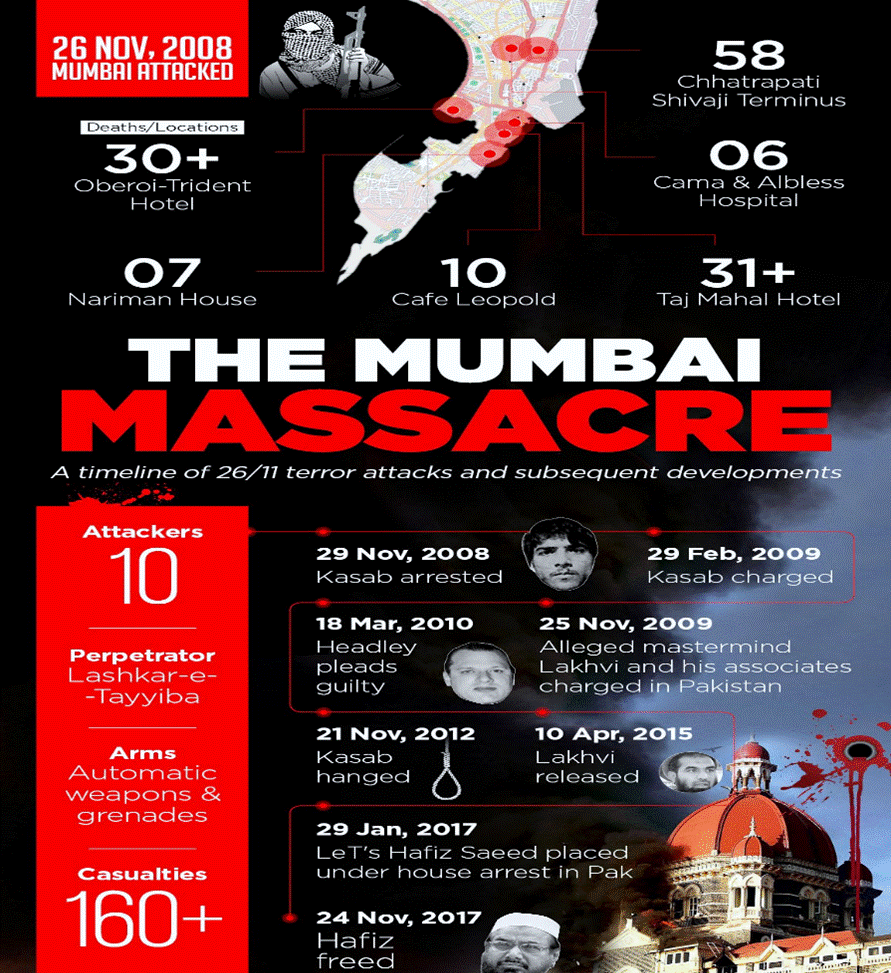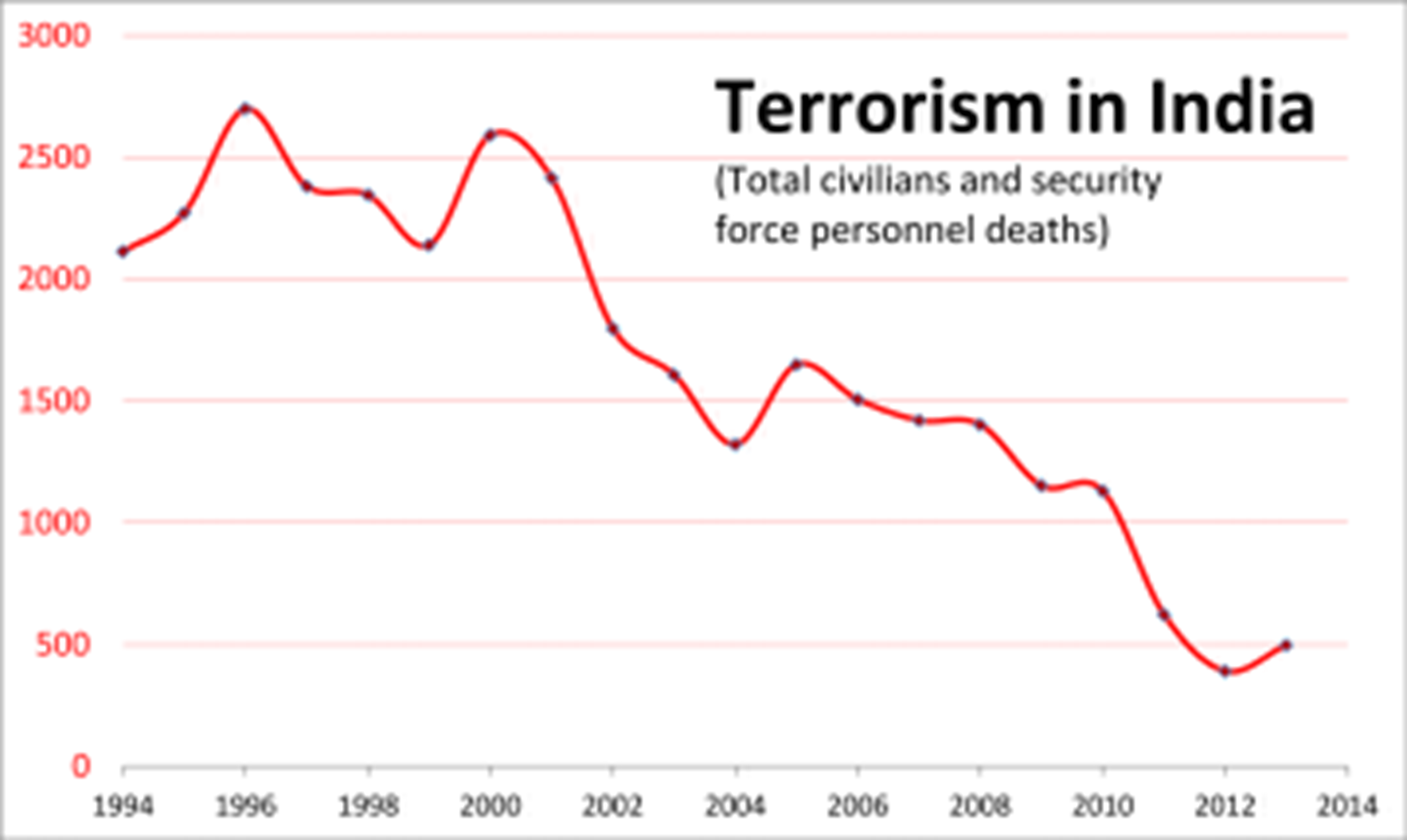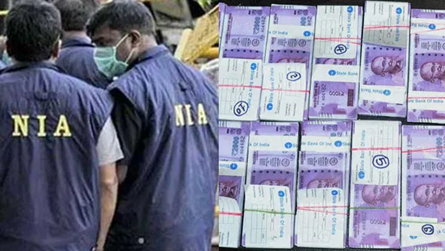PREVIOUS
National Investigation Agency Act, 2008 - Part 02
(இதன் தமிழ் வடிவத்திற்கு இங்கே சொடுக்கவும்)
Establishment of the NIA
- The National Investigation Agency (NIA) was constituted in 2009 under the provisions of the National Investigation Agency Act, 2008 (NIA Act).
- It is the central counter terrorism law enforcement agency in the country.
- The NIA was established in the backdrop of the 2008 Mumbai terror attacks, popularly known as the 26/11 incident.

Headquarters and Branch Offices
- The headquarters of the NIA is located in New Delhi.
- Additionally, branch offices of the NIA are situated in strategic locations across the country, including Hyderabad, Guwahati, Mumbai, Lucknow, Kochi, Kolkata, Jammu, and Raipur.
- These offices enable the NIA to effectively coordinate and conduct investigations nationwide.
Specialized Unit: TFFC Cell (Terror Funding and Fake Currency Cell)
- In addition to its branch offices, the NIA operates a specialized cell known as the TFFC Cell.
- This unit focuses on addressing issues related to fake currency notes and terror funding.
- The TFFC Cell plays a crucial role in disrupting the financial networks that support terrorist activities.
Leadership and Governance
- The NIA is headed by a Director General, appointed by the central government.
- The Director General possesses powers akin to those of a Director General of Police in a state.
- Under the administrative control of the Ministry of Home Affairs, Government of India, the NIA operates with the mandate to investigate and prosecute offenses specified under the NIA Act.
State Cooperation
- The state governments extend full assistance and cooperation to the NIA for the investigation of offenses outlined in the NIA Act.
- This collaborative effort ensures effective law enforcement and counter terrorism measures across the country.
Background of Terrorism in India
- India has been a frequent target of terrorism, often originating from neighbouring countries.
- Terrorist attacks have occurred across various regions, including urban centers and rural areas.

Complex Inter-state and International Linkages
- Many terrorist incidents exhibit intricate connections across state borders and even internationally.

- These incidents often involve activities such as arms and drug smuggling, counterfeit currency circulation, and border infiltrations.

Need for Centralized Investigation Agency
- Given the multifaceted nature of terrorism and its national ramifications, there was a recognized need for a centralized agency.
- This agency would be tasked with investigating terrorism related offenses and other crimes at the national level.
Recommendations for Establishing the NIA
- Various expert committees and the Second Administrative Reforms Commission had recommended the establishment of such an agency.
- These recommendations emphasized the importance of a centralized agency in addressing India's evolving security challenges.
Proposal for the National Investigation Agency (NIA) Act, 2008
- After careful consideration, the government proposed the enactment of the NIA Act, 2008.
- This legislation aimed to establish the NIA with concurrent jurisdiction and authority to investigate specific cases under relevant Acts.

Functions of NIA
Investigation and Prosecution
- The primary function of the NIA is to investigate and prosecute offences listed in the Schedule of the NIA Act.
- It focuses on counter terrorism activities and ensures the thorough investigation of relevant cases.
Information Sharing
- The NIA collects, collates, and analyses counter terrorism intelligence.
- It shares vital inputs and intelligence with other intelligence agencies and law enforcement units at both central and state government levels.
Assistance and Collaboration
- The agency provides assistance to other intelligence and investigation agencies of both central and state governments.
- It also seeks assistance when necessary to enhance its investigative capabilities.
Speedy Implementation
- The NIA takes necessary measures to ensure the speedy and effective implementation of the provisions outlined in the NIA Act.
- This includes streamlining investigative processes and adopting best practices to expedite legal proceedings.
Vision
Dedication to Professionalism
- The NIA envisions itself as a highly professional investigative agency, committed to upholding the highest international standards.
- It strives to conduct investigations with precision and efficiency, ensuring thoroughness in every aspect.
- The agency aims to establish itself as a benchmark in counter terrorism and national security related investigations.
- By fostering a highly trained and collaborative workforce, the NIA seeks to elevate investigative standards at the national level.
- One of the core objectives of the NIA is to create deterrence against both existing and potential terrorist groups or individuals.
- Through its actions and investigations, the agency aims to discourage terrorist activities and maintain national security.
Centralized Information Repository
- The NIA endeavours to become a central repository of all terrorist related information.
- By accumulating and organizing data on terrorist activities, the agency aims to enhance its intelligence capabilities and strengthen national security efforts.
Mission
Thorough Investigation:
- Conducting comprehensive investigations of scheduled offences using cutting edge scientific methods, setting high standards to ensure detection of all entrusted cases.
Efficient Trial:
- Ensuring effective and swift trials, prioritizing the timely dispensation of justice.
Professionalism and Integrity:
- Developing into a thoroughly professional, results oriented organization, upholding the Constitution and laws of India, and prioritizing the protection of human rights and individual dignity.
Workforce Development:
- Cultivating a professional workforce through continuous training and exposure to best practices and procedures.
Scientific Approach:
- Employing a scientific temper and progressive spirit in fulfilling assigned duties.
Technological Integration:
- Integrating modern methods and cutting-edge technology into all agency activities to enhance efficiency.
Collaboration and Cooperation:
- Maintaining professional and amicable relations with state governments, union territories, and other law enforcement agencies in accordance with legal provisions.
Assistance to States:
- Providing assistance to all states and investigative agencies in probing terrorist cases.
Information Sharing:
- Establishing and managing a comprehensive database on all terrorist related information, and sharing it with states and other relevant agencies.
Legal Analysis:
- Studying and analysing terrorism related laws in other countries, regularly assessing the adequacy of existing Indian laws, and proposing necessary changes.
Public Confidence:
- Building trust and confidence among Indian citizens through selfless and fearless efforts to combat terrorism.
Comprehensive Jurisdiction
- The NIA holds a concurrent jurisdiction to investigate and prosecute offenses that jeopardize the sovereignty, security, and integrity of India, including:
Terrorism:
- Investigating terror attacks such as bomb blasts, hijackings of aircraft and ships, and attacks on nuclear installations.
International Crimes:
- Handling offenses under Acts implementing international treaties, agreements, conventions, and UN resolutions.
Broadened Authority:
- Since 2019, the NIA's jurisdiction extends to crimes like human trafficking, counterfeit currency, prohibited arms manufacturing or sale and explosive substances.

- This expanded authority enables the NIA to effectively address emerging threats and uphold national security with greater vigilance and efficiency.
NIA (Amendment) Act, 2019
Overview:
- The NIA (Amendment) Act, 2019 introduced several key provisions to enhance the capabilities and jurisdiction of the National Investigation Agency. These provisions include:
Expanded Extraterritorial Jurisdiction:
- Extending the NIA Act's provisions to individuals committing scheduled offenses beyond India.
- This includes offenses affecting Indian citizens or national interests.

Enhanced Powers for NIA Officers:
- Granting NIA officers similar powers, duties, privileges, and liabilities as police officers, not only within India but also for investigations conducted outside the country.
Central Government's Directives:
- The central government is empowered to instruct the National Investigation Agency (NIA) to register and investigate cases related to scheduled offenses committed beyond India's borders, treating them as domestic incidents.
- This directive extends the NIA's jurisdiction to handle transnational crimes with the same authority as if they occurred within Indian territory.
- It enhances the government's capability to combat cross-border criminal activities effectively.
- This provision reinforces India's commitment to combating transnational crimes and terrorism through robust investigative measures.
- The directive empowers the NIA to pursue justice for offenses committed abroad that affect India's national security and interests.
Special Courts:
- Both central and state governments have the authority to designate Sessions Courts as Special Courts for adjudicating cases under the NIA Act.
- This designation ensures expeditious and efficient legal proceedings for offenses falling under the NIA's jurisdiction.
- By designating Sessions Courts as Special Courts, the government aims to streamline the trial process and enhance the effectiveness of law enforcement in combating terrorism and organized crime.
- Special Courts established under this provision have the necessary jurisdiction and authority to handle cases under the NIA Act promptly and effectively.
- The designation of Special Courts underscores the government's commitment to ensuring swift justice and maintaining national security.

Expansion of Scheduled Offenses:
- Addition of new offenses to the Schedule of the NIA Act, enhancing the agency's mandate to address evolving threats and challenges effectively.


